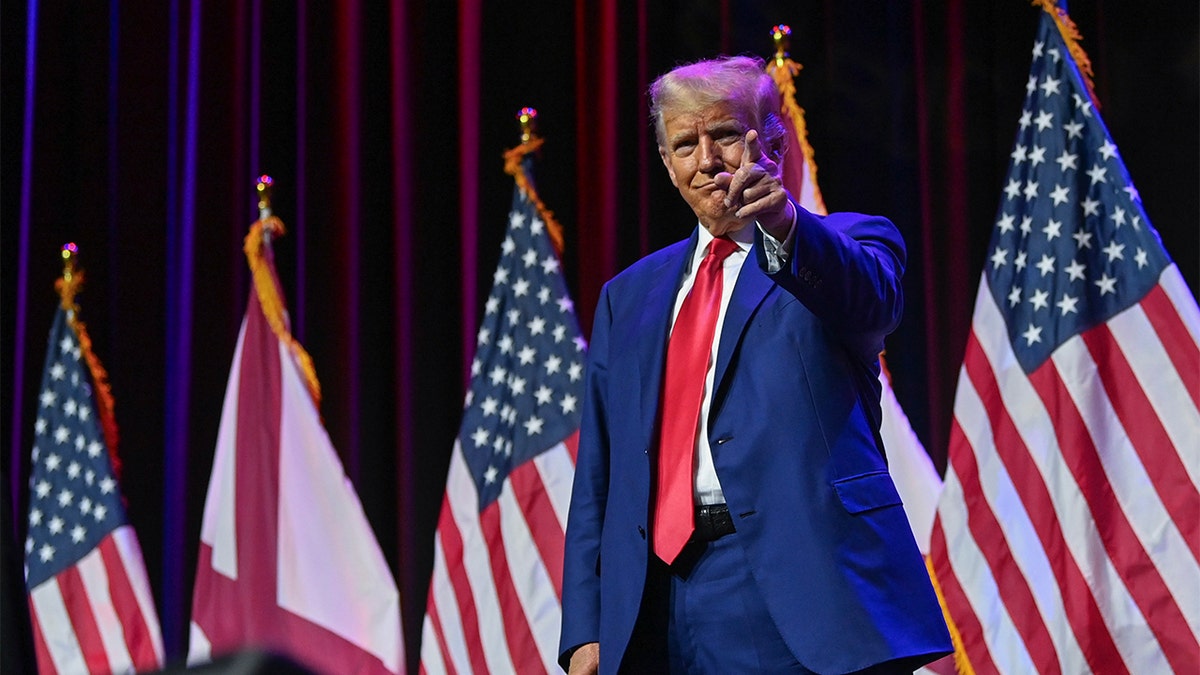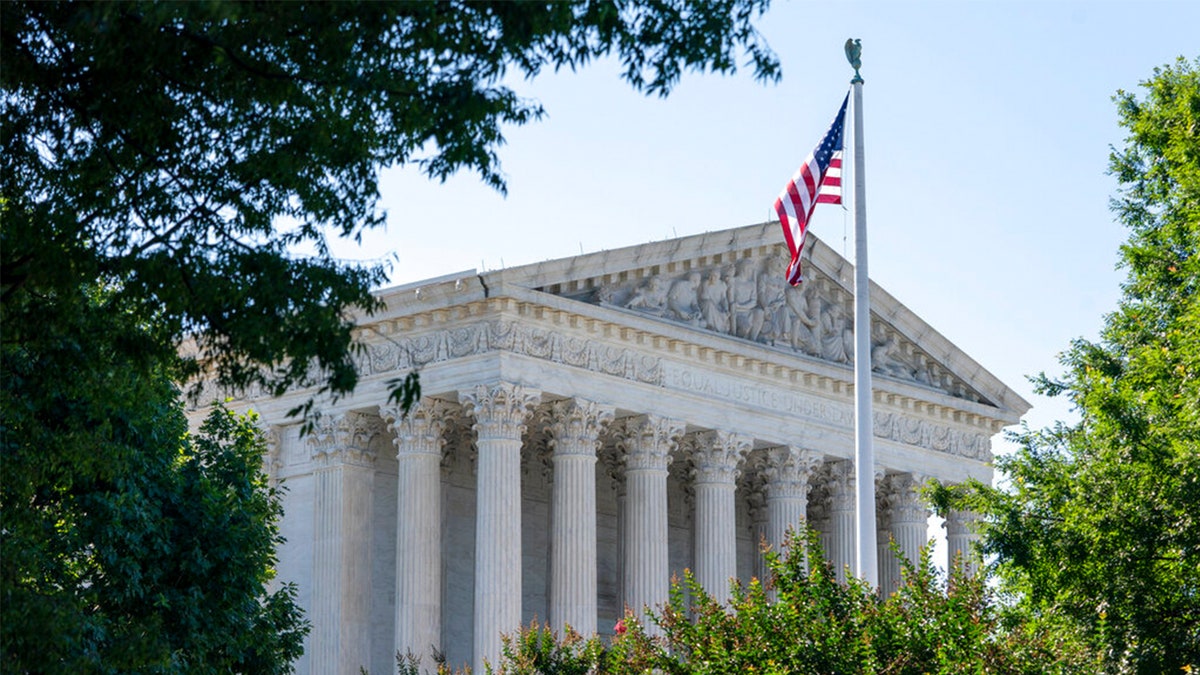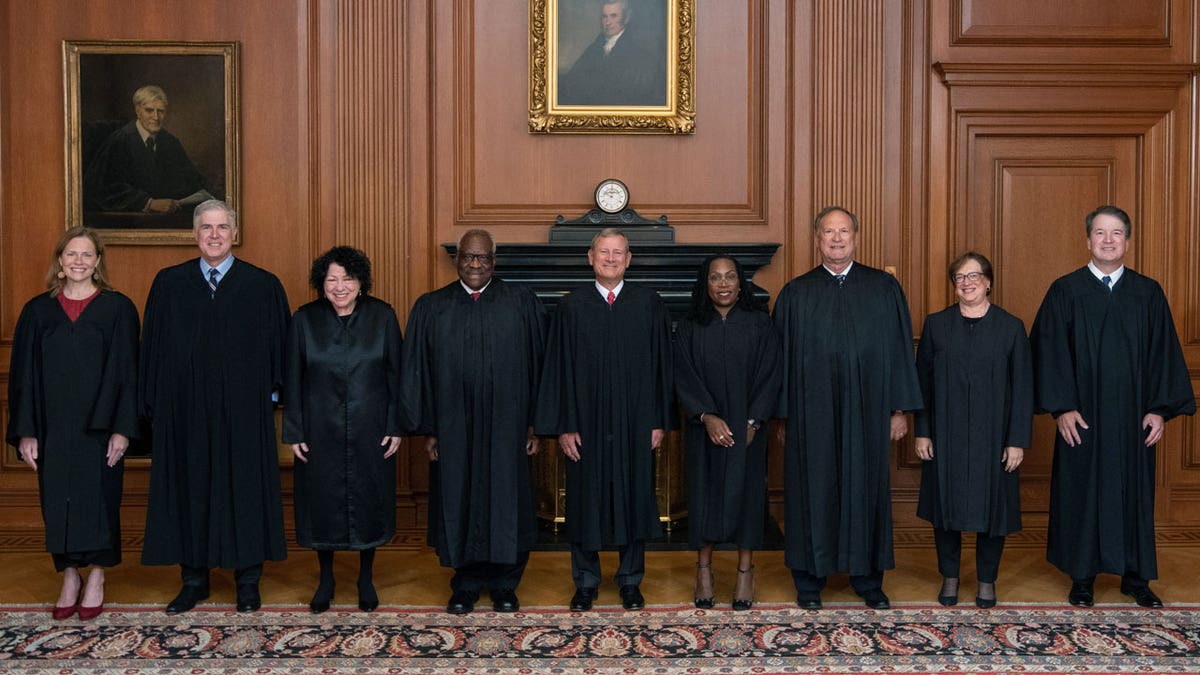FIRE CEO Greg Lukianoff on free speech survey: Harvard earned their spot
FIRE president and CEO Greg Lukianoff dissects a survey on free speech on U.S. campuses, which also marked Harvard as the worst school for free speech.
The Supreme Court on Wednesday will hear arguments over whether the Patent and Trademark Office (PTO) violated the First Amendment when it refused the registration of a political slogan on T-shirts that criticizes former President Donald Trump without his consent.
At the heart of the case is the question of when First Amendment protections end and the right to privacy begins when a trademark contains criticism of a government official or public figure.
In 2017, Steve Elster, a politically active Democrat attorney in California, wanted to get the phrase "Trump Too Small" printed on T-shirts to sell. The phrase originated from an exchange on the 2016 debate stage between Trump and Sen. Marco Rubio, R-Fla. The Florida senator made a crude joke in reference to the size of the former president’s hands.
But when Elster sought to trademark the slogan, he was denied by the PTO, and the Trademark and Trial Appeal Board upheld the decision, because the mark identified Trump without his consent.
The decision was reversed by a federal circuit court, noting that Elster’s trademark goes to "the heart of the First Amendment," and held that the government has no plausible "interest in restricting speech critical of government officials or public figures in the trademark context."

Democrat activist Steve Elster wanted to trademark the slogan "Trump Too Small" to put on t-shirts, in reference to a crude joke Sen. Marco Rubio, R-Fla., made towards Donald Trump on the 2016 debate stage. (Julie Bennett/Getty Images)
The Justice Department arguing on behalf of Katherine Vidal, under secretary of commerce for intellectual property, eventually appealed the case up to the Supreme Court, arguing that the Lanham Act, which is a federal statute aimed at protecting intellectual property in trademark designations, gives the PTO constitutional authority to block Elster’s trademark request.
"When registration is refused because a mark ‘[c]onsists of or comprises a name…identifying a particular living individual’ without ‘his written consent,’ ‘[n]o speech is being restricted; no one is being punished,’" the DOJ’s petition to the high court says.
'POOP-THEMED' JACK DANIEL'S DOG TOY PARODY NOT PROTECTED BY FIRST AMENDMENT, SUPREME COURT SAYS

The Supreme Court is set to decide if a derogatory political slogan towards former President Donald Trump can be trademarked without his consent, weighing free speech protections. (AP Photo/Jacquelyn Martin)
SENATE DEMOCRATS TURN UP THE HEAT, ANNOUNCE 'NEXT STEP' IN SUPREME COURT ETHICS INVESTIGATION
Fara Sunderji, partner at international law firm Dorsey & Whitney, says, "Despite outward appearances, this case is really not about Trump or the size of his policies or (body parts)."
"Will this decision restrict speech — namely political criticism in a time where the country is so divided as the 2024 candidates are starting up their engines? The trademark applicant, Mr. Elster, would have us believe that, yes, that is what is at stake," says Sunderji.

The Supreme Court will hear arguments in the case Vidal v. Elster on Wednesday. (Collection of the Supreme Court of the United States via Getty Images)
"So, what is the potential outcome? If the Court upholds the Federal Circuit’s opinion, will the USPTO be inundated with trademark applications for every political phrase containing a candidate’s name in the 2024 election? Probably not. Will daily life be flooded with t-shirts containing slogans with all the 2024 candidates’ names by unrelated third parties? I hope not," concludes Sunderji.
CLICK HERE TO GET THE FOX NEWS APP
Arguments are scheduled to begin at 10 a.m. on Wednesday.











































